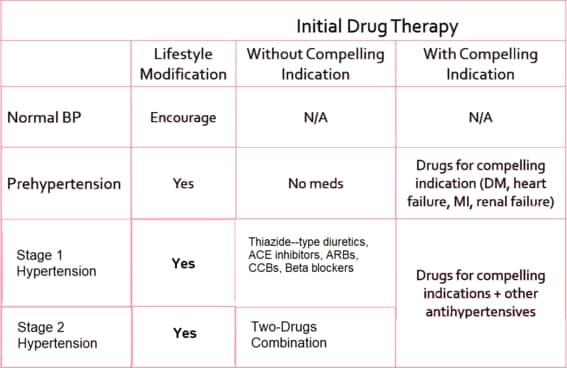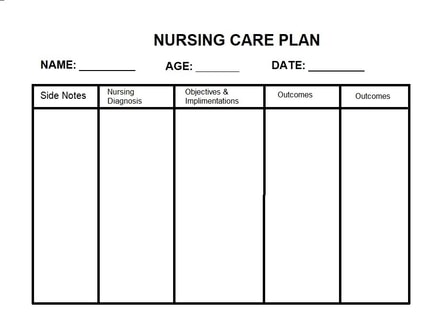Nursing Care Plan For Hypertension
In a nursing care plan for hypertension, first of all, obtain all vital signs, assess skin color, temperature, blood pressure, malaise.
Sample Nursing Care Plan For Hypertension
A nursing care plan looks like the one in an example below.
Important:
A nursing care plan can have different formats and designs but this is not important at all. The most important thing in a nursing care plan is the quality of the content it has.
Mechanism of Blood Pressure Regulation
We have two types of systems for blood pressure in our body and it is important to understand them in a nursing care plan for hypertension. They include short-term regulation & long-term regulation.
Short-Term Regulation: It corrects temporary imbalances in blood pressure by following two mechanisms which include neural mechanisms and humoral mechanisms
Long-Term Regulation: It controls the regulation of blood pressure by the renal mechanism.
Hypertension
BP of › 140/90 in individuals who do not have diabetes. Systolic blood pressure greater than or equal to 140 mm Hg. And a diastolic blood pressure greater than or equal to 90 mm Hg.
BP of ›130/85 in individuals with diabetes or renal impairment. Systolic blood pressure of 130 mm Hg. And a diastolic blood pressure of 85 mm Hg or higher.
Initial Drug Therapy

Lifestyle Modification
The first approach to modify the lifestyle of the body is to reduce the weight. We should focus to reduce the weight only if BMI is less then 27. Increasing physical activity is another way to modify the lifestyle. It can be done by following ways. Walking for about 30 to 45 minutes daily. Brisk walking, running, cycling, swimming, or stair climbing. 30 to 45 minutes three to five times a week. Should stop if severe shortness of breath, fainting, or chest pain occurs. Should avoid muscle-building isometric exercise.
Sodium restriction. No more than 2.4 g sodium or 6 g NaCl. Explain it takes 2 to 3 months for the taste buds to adapt to changes in salt intake. It may help the patient adjust to a reduced salt intake. Adjust to a reduced salt intake. Try not to add salt at the table. Avoid cooking with salt. Do not add seasonings that contain sodium. Quitting smoking / Avoid tobacco, no alcohol intake and try stress reduction.
Pharmacological Therapy
Diuretics, Adrenergic Agents, Vasodilators, ACE Inhibitors, ARBs, and CCB.
Medical Disclaimer:
The information provided on this website (www.MadeForMedical.com) is only for educational purpose.
While we tried hard to write quality articles but still, the articles and the information within them is not guaranteed to be free of factual errors or typos and hence may not be correct. You are advised to independently verify the claims in the articles and make your own conclusion.


